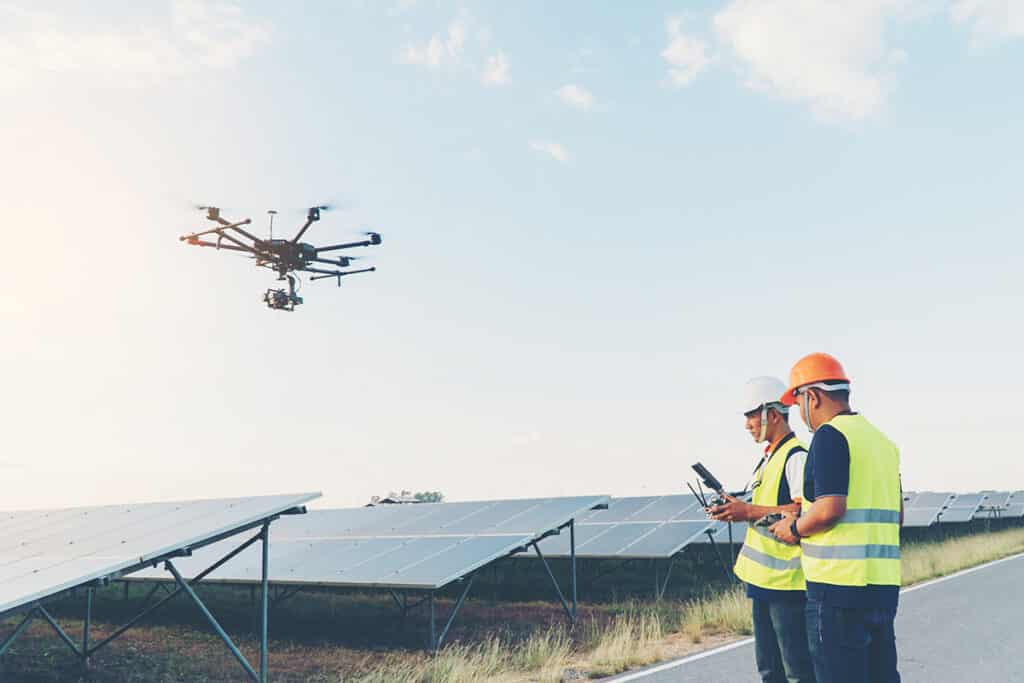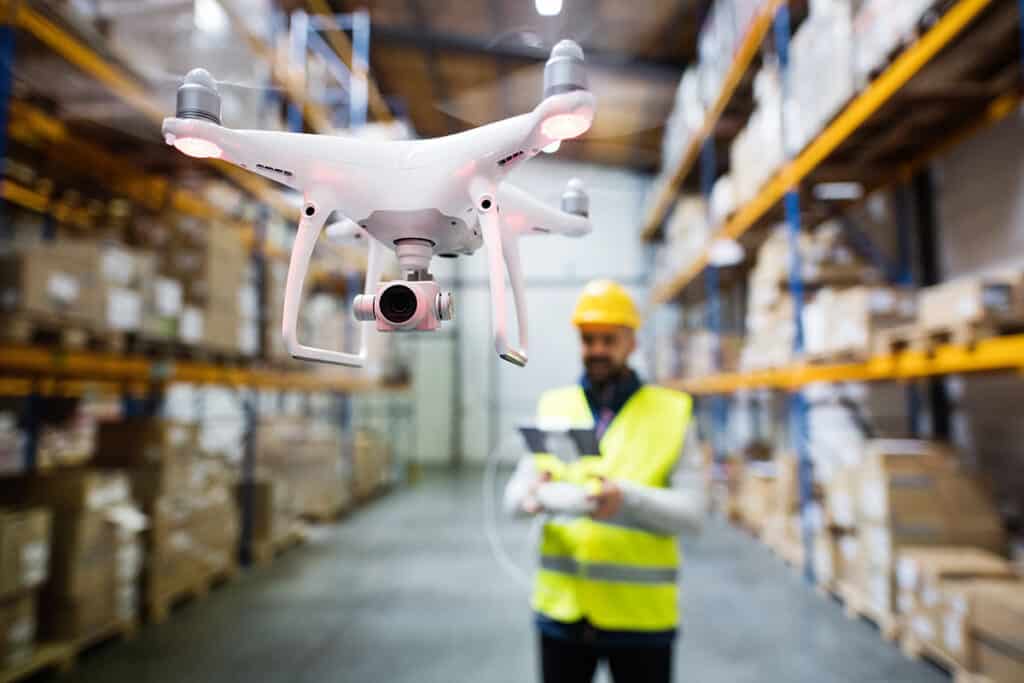Drones’ Critical Role In Industry 4.0
It’s never too late to start incorporating drones into your business. In fact, there’s no better time than the present.
In the late 1700’s, the industrial world started changing in a significant way. The power of steam, water, and mechanical equipment pushed society from individually crafted goods towards mass production.
It’s what we now recognize as the Industrial Revolution, a time period that reshaped how people lived, learned, and prospered. But, that was only the beginning.
Later, further advancements brought about additional industrial revolutions, each with their own defining characteristics.
The division of labor, electricity, and mass production characterized the Second Industrial Revolution in the late 1800’s. The Third Industrial Revolution began in the mid-late 1900’s, and included electronics, automation, the internet, and other innovations related to information technology.
Now, we all bear witness to the next wave in advancements. We are now at the beginning of what renowned German professor Wolfgang Wahlster calls Industry 4.0, or the Fourth Industrial Revolution.
This revolution is defined as the fusion of technologies that blur the lines between biological, digital, and physical spheres. Like previous revolutions, this period has the power to drastically change the world, with drones playing an ever-growing role in Industry 4.0.
You see, drones embedded themselves as a crucial technology in Industry 4.0, offering a range of benefits for industries such as manufacturing, logistics, and agriculture.
While there are limitless possibilities for drones in Industry 4.0, here are just a few examples of where drones will help move the Fourth Industrial Revolution forward.
Quality Control & Monitoring
Cameras have been a part of quality control for many years.
For instance, factories, chemical plants, oil refineries, and warehouses all benefit from computers visually detecting defects.
But, one challenge faced when using cameras for quality control is that they must often be integrated into an existing process. Assembly lines, conveyor belts, multilevel facilities, and the like, all require significant capital investment to install quality-control cameras.
However, drones are easily used for this purpose, and don’t need to be installed into a complex system.
With their ability to fly and avoid obstacles, even in tight spaces, these eyes in the sky can quickly detect defects or errors in nearly any process.
And, with the data gathered, combined with personnel monitoring live feeds, UAVs help identify issues before they cause you significant problems down the line.
Transportation & Logistics
Last-mile delivery is one of the greatest problems facing modern supply chains.
If you look at most supply chains, the journey of a product – from manufacturing, to delivery, to the customer – involves many steps in the process
The final handoff to the customer, known as “the last mile”, almost always remains an operation’s most expensive and time-consuming portion. Organizations like Amazon have entire departments of people working on just this issue.
Now, many organizations integrate delivery drones into their assets to address this very problem.
Walmart uses DroneUp, Amazon has Prime Air, and numerous others are looking to drones to solve this problem.
Drones can quickly deliver goods to customers, but that isn’t their only role in Industry 4.0. They are also data-collecting machines that can feed information into the system fostering constant improvement and great efficiencies.
Inspection & Maintenance Via Drones In Industry 4.0
UAVs equipped with cameras and sensors can capture high-resolution images and data, allowing for more detailed inspections of large and complex infrastructures such as bridges, wind turbines, and oil rigs.
These inspections can be performed remotely, reducing the risk of injury to workers and increasing safety.
The data collected by drones can also be analyzed using artificial intelligence and machine learning algorithms, providing actionable insights for preventive maintenance and improving overall operational efficiency.
By using drones for inspections, companies can save time, reduce costs, and improve safety, making drones in Industry 4.0 an essential tool.
Inventory Monitoring
When I worked for a large e-commerce company in a million-square-foot warehouse, keeping track of our inventory was no small task.
Small armies of workers were needed to scan items in and out, as products moved around the facility, and eventually shipped to customers. While this inventory management method works, it falls outside the Industry 4.0 model.
But now, drones are seeing expanded use for this application.
Working around the clock, UAVs can collect real-time data on stock levels and mapping out more efficient storage of goods within a supply chain. The result is lower operational costs, decreased labor needs, and lower incidents of theft.
It all adds up to better metrics for operators, and potentially lowering costs for both the business, and the consumer.
Key Takeaways of Drones In Industry 4.0
Overall, drones can help companies in nearly any industry optimize operations, reduce costs, and improve safety and efficiency, making them an essential part of the Industry 4.0 ecosystem.
Moving forward, UAVs will continue to entrench themselves within the fourth industrial revolution, thanks to the numerous benefits the technology brings to the table.
If you want to learn how drones can help your organization, speak with an expert today.
—
So, are you ready to take advantage of drones for your organization? If so, how do you get started? Do you hire out or bring your drone program in-house?
At Consortiq, we help companies across nearly any industry discover better solutions through the use of drones. We can help you create and develop an in-house program from the ground-up, or simply perform the work for you, if you prefer.
Ready to learn more? Just complete the form below to schedule a risk-free consultation!

David Daly - Contributing Author
David Daly, is an award-winning photographer/writer and licensed (FAA) Commercial sUAS pilot. A graduate of the United States Naval Academy, David is a former Marine Corps officer with a BS in Oceanography and has earned his MBA from the University of Redlands. David has worked for Fortune 100 companies and has a background in aerospace, construction, military/defense, real estate, and technology.
Ready to Utilize Drones For Your Organization?
Contact Us Today to Get Started!



